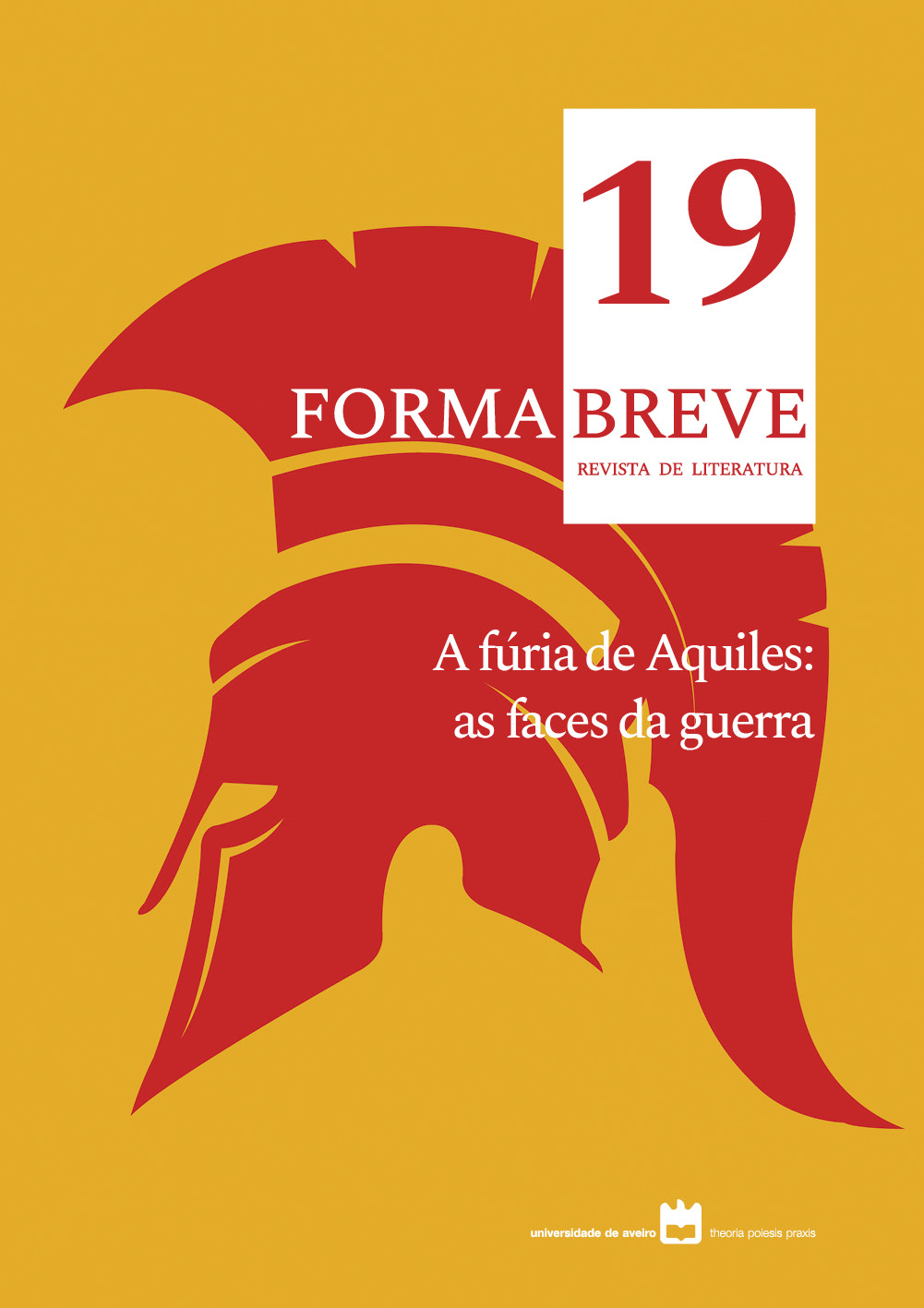“O nosso próprio correspondente da Grécia”; Cobrindo a guerra diplomática e o conflito no início da Grã-Bretanha vitoriana (1835–1857)
Resumo
Nos anos 1835-1857, a missão diplomática Britânica em Atenas não limitou a sua atividade à política britânica, mas construiu um relacionamento direto e cuidadosamente culto com a imprensa inglesa. Vários episódios revelaram a sua intenção de usar os artigos jornalísticos como veículo para justificar a conduta e as opiniões dos funcionários de estado sobre a política grega. Este artigo argumenta que no início da Grã-Bretanha vitoriana os políticos estavam plenamente conscientes da implicação de supervisionar as informações sobre relações exteriores que chegavam ao público e de exercer pressão diplomática sobre outros Estados através da imprensa diária. Com o desenvolvimento internacional, fez-se gradualmente uma leitura interessante, a escassez de comunicação de um país distante como a Grécia deu autoridade e influência às reportagens publicada nos jornais de Londres, fortemente “influenciados” pelas considerações internacionais Britânicas. Nesse contexto, as colunas de um jornal diário e a brevidade das contribuições jornalísticas permitiram que os membros da Legação Britânica em Atenas apresentassem o seu severo censor dos sucessivos governos gregos a uma seção mais ampla do corpo político britânico.
Downloads
Referências
Anonymous (1847-1848). The Political Condition and Prospects of Greece. The Massachusetts Quarterly Review, 1, 68-74.
Brouzas, C. C. (1949). Byron’s Maid of Athens: Her Family and Surroundings. West Virginia University Bulletin-Philological Papers, 12-VI, 48–50.
Brown, D. (2012). Palmerston. A biography. Yale University Press. https://doi.org/10.1080/02684527.2014.937166
Brown, D. (2002). Palmerston and the politics of foreign policy 1846–55. Manchester University Press. https://doi.org/10.1080/09592290701333561
Brown, L. (1977). The Treatment of the News in Mid-Victorian Newspapers. Transactions of the Royal Historical Society, 27, 23–39.
Busse, V., & Busse, M. (Eds.). (2014). Diary of Wilhelmine von Plüskow. Grand Lady-in-Waiting of Queen Amalia. Marathon.
Busse, V., & Busse, M. (Eds.). (2011). Unpublished Letters of Queen Amalia to her Father, 1836-1853. Estia.
Canning, Stratford (1850, March 7). [Letter to Sir Thomas Wyse]. Public Record Office, (Canning Papers, FO352/33A/1, folder 8), Kew Gardens.
Dakin, D. (1973). The Greek Struggle for Independence, 1821–1833. Batsford.
Dracatos Papanicolas, Georgios (1850). On the Speech of Her Majesty’s Foreign Secretary. A Letter to the Right Hon. Viscount Palmerston in Reference to the Greek Question. London.
Figes, O. (2012). The Crimean War. A History. Picador.
Griffiths (1850, July 9). [Letter to Sir Thomas Wyse]. Public Record Office (FO, folio 219, 32/1820, Kew Gardens.
Hionidis, P. (2002). The Greek kingdom in British public debate, 1862-1881 [Doctoral dissertation, University of London]. British Library, EThOS.
https://ethos.bl.uk/OrderDetails.do?uin=uk.bl.ethos.399528
Jones, A. (2016). Powers of the press: Newspapers, power and the public in nineteenth-century England (2nd ed.). Routledge. https://doi.org/10.4324/9781315246246
Kofas, J. V. (1980). International and Domestic Politics in Greece during the Crimean War. Columbia University Press.
Koss, Stephen (1981). The Rise and Fall of the Political Press in Britain. Vol 1: Nineteenth Century. Hamish Hamilton.
Lyons Papers, West Sussex Record Office, Chichester.
Lyons, Sir Edmund (1839, May 15). [Dispatch to Lord Palmerston]. Public Record Office, (FO32/87, folios 221–230). Kew Gardens.
Mac Lean, D. (1981). The Greek Revolution and the Anglo-French Entente 1843–44. English Historical Review, 96(378), 117–129. https://doi.org/10.1093/ehr/XCVI.CCCLXXVIII.117
Miliori, M. (1998). The Greek nation in British eyes 1821–1864: Aspects of a British discourse on nationality, politics, history and Europe [Doctoral dissertation, Oxford University]. British Library, EThOS. https://ethos.bl.uk/OrderDetails.do?uin=uk.bl.ethos.264836
Palmerston, H. J. Temple (1832). Speech in the House of Commons. Hansard’s Parliamentary Debates (3rd series), col. 1163.
Parry, Jonathan (2002). The Politics of Patriotism. English Liberalism, national identity and Europe, 1830-1886. Cambridge University Press. https://doi.org/10.1017/CBO9780511495984
Petropulos, J. A. (1968). Politics and statecraft in the Kingdom of Greece, 1833–1843. Princeton University Press. https://doi.org/10.1515/9781400876020
Philhellene (1848). British Diplomacy in Greece. London.
Southgate, D. (1966). “The Most English Minister…” The policies and politics of Palmerston. Macmillan.
Skopetea, E. (1988). To “protypon vasileion” ke he Megale Idea. Opseis tou Ethnikou provlematos tes Ellados (1830–1880) [The “Model Kingdom” and the Great Idea. Aspects of the National Problem in Greece]. Polytypon (Greece).
Steele, E. D. (1991). Palmerston and Liberalism, 1855–1865. Cambridge University Press.
The History of the Times. Volume II: The Tradition Established 1841–1884 (1939). Office of the Times.
The Morning Chronicle
The Morning Herald
The Morning Post
The Times.
Wyse, Sir Thomas (1850, March 2). [Letter to Stratford Canning]. Public Record Office (Canning Papers, FO352/33A/1, folder 7), Kew Gardens, UK.
Direitos de Autor (c) 2023 Dr Pandeleimon Hionidis

Este trabalho está licenciado com uma Licença Creative Commons - Atribuição 4.0 Internacional.








